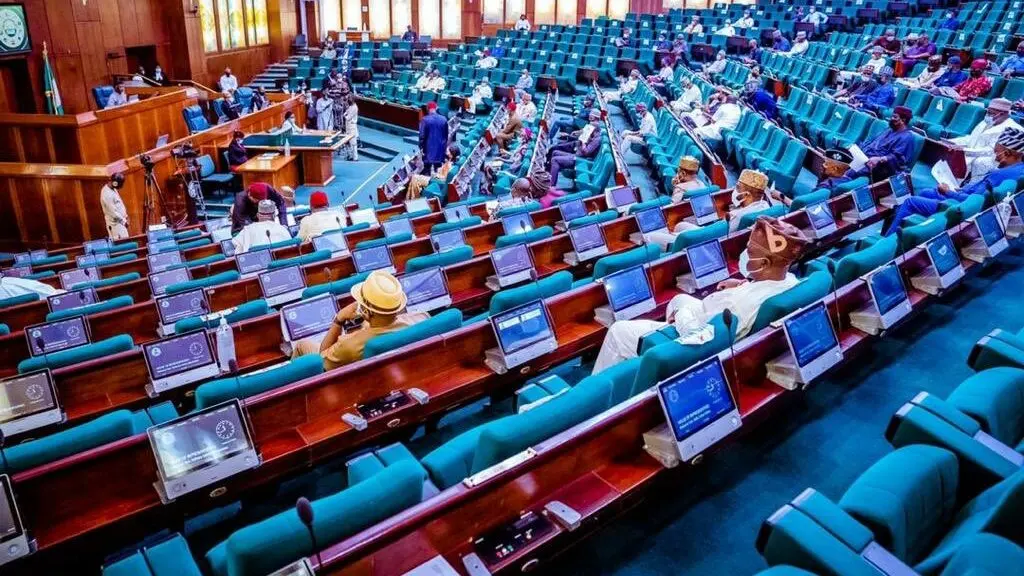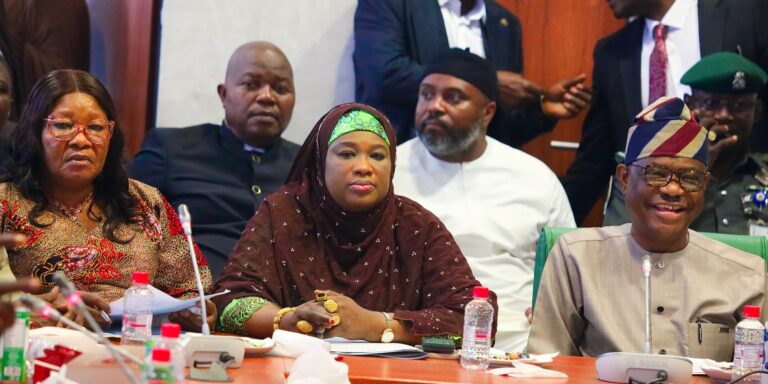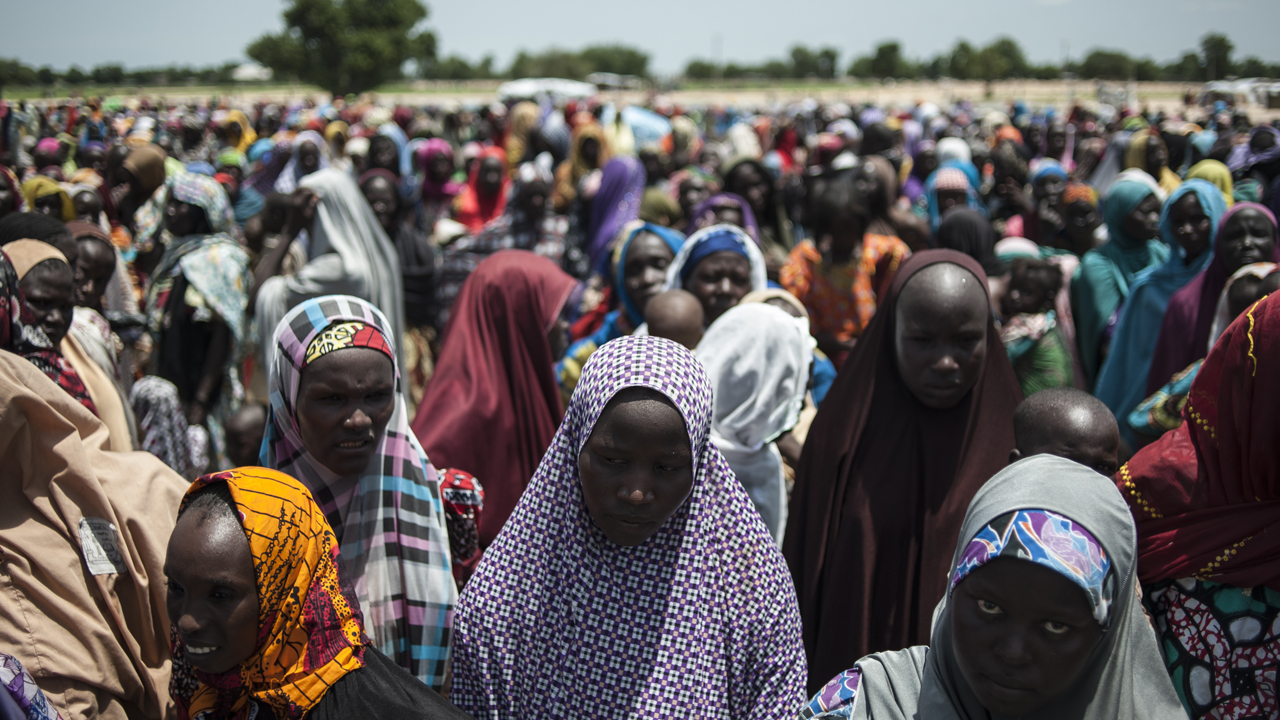NEWS
Tinubu’s CNG Programme will Transform Public Transport – Presidential Aides

The Compressed Natural Gas (CNG) programme of the President Bola Tinubu administration is designed to transform the country’s transportation system by giving citizens cheaper alternative to Premium Motor Spirit (PMS).
Mr Bayo Onanuga, Special Adviser to the President, Information and Strategy, and Mr O’tega Ogra, Senior Special Assistant to the President, Digital Communication and Engagement, said this while briefing State House correspondents on Wednesday in Abuja.
Onanuga said the Federal Government developed a CNG programme to give Nigerians an alternative to PMS.
“If you don’t want to use PMS, you can use CNG. You can see what’s going on in some of our cities: Lagos, Ibadan, Benin, and others, where transporters are already embracing CNG.
“The whole idea is that CNG is the equivalent to PMS. If they sell a litre of PMS at N850; what you’re going to get by the equivalent of CNG is about N230. The gap is very wide,” said Onanuga.
According to him, the government will ensure that about a million vehicles run on CNG.
“The whole idea is that if they run on CNG, the cost of transportation will go down.
“In addition, the government is encouraging many states to embrace urban transportation, so they can help to reduce the cost of transportation in many of our cities,” he said.
He said at present only Lagos State had an urban transport system, and that the government planned to encourage cities like Ibadan, Kaduna, Kano and others to start urban transportation systems.
According to him, the government will also make sure that private car owners convert to CNG at a reduced cost.
“For transporters, it’s almost free for them. But for private vehicle owners, the government has a plan to subsidise the cost of conversion from petrol to CNG,” he said.
Ogra noted that more foreign investments coming into the gas sector would help transform the country’s public transportation system.
He cited TotalEnergies’ partnership with NNPC to develop the Ubeta Field, a gas development project valued at the 550 million dollars.
He said the price of CNG is now N230 per standard cubic feet and from the testimonials of commercial transporters and Uber drivers, those who earned N30, 000 to N40, 000 a day spent about N20, 000 on PMS.
But he said with CNG, they now spend about 4,000 to 5,000 to fill their tanks, which would take them for two days, and then they have the rest as profit.
“So, whether you were taking back maybe 10,000 or less home as profit at the end of the day before, now they are closer to 20,000 profits a day or sometimes more.
“So, the benefits are there. Nigeria is primarily a gas country, and that’s why you see that this government is putting so much effort into positioning gas as the next fuel of the future,” said Ogra. (NAN)
NEWS
Reps to Investigate Alleged Irregularities in Driver’s licence Issuance, Revenue Generation

The House of Representatives has resolved to set up an ad hoc committee to investigate operational issues related to driver’s licence issuance, revenue generation and usage within the last three years.The resolution was sequel to the adoption of a motion by Rep. Victor Ogene (APC-Bayelsa) at the plenary on Wednesday.
Moving the motion, Ogene said that a tripartite arrangement between Federal Road Safety Corps (FRSC), State Boards of Internal Revenue (BIR) and the Vehicle Inspection Office (VIO) led to the digital issuance or renewal of a driver’s license. He said that the approving signature on a driver’s licence typically comes from a designated officer at the Motor Vehicle Administration Agency (MVAA) in the state where the licence application originated.He explained that a learner’s permit for driving a vehicle was first issued at a prescribed fee by Motor Vehicle Administration Agency (MVAA) in the relevant state before the release of a driver’s licence.According to him, FRSC operates a Very Important Person (VIP) centre, ostensibly for the renewal of a driver’s licence, which is reportedly being used for issuing fresh driver’s licences that are not preceded with a learner’s permit.Ogene said that the Joint Tax Board (JTB) reviewed the fees payable for a five-year and three-year driver’s licence to N21,000 and N15,000 respectively for a vehicle, N11,000 and N7,000 respectively for a motorcycle or tricycle since Nov. 1, 2024.“FRSC is alleged to use its Information Processing Centre (IPC) for warehousing data for driver’s licences and shortchange the state Boards of Internal Revenue (BIR) and the Vehicle Inspection Office (VIO) in the collection and usage of fees for processing driver’s licences.“Worried that FRSC is reportedly controlling and receiving accounts for drivers’ licence fees, the yearly revenue generated from chargeable fees which amounts to hundreds of billions of naira, is also allegedly unaccounted for by the VIO and various state boards of internal revenue.“Disturbed that the processing of drivers’ licences is unexplainably being delayed for upward of two to three years after the biometric data capturing of applicants.“Also disturbed that the huge debts the FRSC owes Galaxy Backbone Ltd. and other system consultants who are the network providers and maintainers of the biometrics data capturing system are responsible for the system slowdown and the resultant long delay in the issuance of driver’s licences,” he said.Ogene also expressed the need to clearly ascertain which public agency had the legal responsibility of designing, producing and issuing a driver’s licence.In his ruling, Speaker of the House, Rep. Abbas Tajudeen said that the committee, when constituted, would report its findings within four weeks for further legislative action. (NAN)NEWS
Those Waiting for Wike’s Downfall ‘ll Wait Endlessly – Aide

Mr Lere Olayinka, spokesman to the FCT Minister Nyesom Wike says those waiting for the minister’s political downfall will wait endlessly.Olayinka, Senior Special Assistant to the FCT Minister on Public Communications and Social Media, made the remarks while reacting to comments by former governor of Ebonyi Sam Egwu.
Egwu had in a statement on Tuesday, said that Wike was living on borrowed time, adding that the FCT minister’s influence would soon burn out. Reacting, the spokesman said in a statement in Abuja on Wednesday, that those waiting for Wike’s downfall would wait forever.He argued that Wike’s political progress was based on personal hard work, dedication, commitment and most importantly, God’s grace.Olayinka also faulted Egwu’s challenge to Wike to make it possible for the suspended governor of Rivers, Siminalayi Fubara to return to office.He also described allegations that the FCT Minister now exercises the powers of President Bola Tinubu and the National Assembly in Rivers as absurd.“This type of statement should not come from a former lawmaker,” he said.The Wike spokesman also dismissed the threats by a faction of the South East leaders of the PDP to withdraw their support for the party.According to him, it was illogical for people who could not deliver anything substantial in terms of votes to the PDP in the 2023 elections to be threatening to withdraw their support for the party.“The PDP constitution is clear as to who is the National Secretary of the party. His name is Senator Samuel Anyanwu, and anyone saying or doing anything contrary is only interested in the collapse of the party.” (NAN)NEWS
2025 Budget: FCTA Secretariats, Departments to Spend N351.2bn on Capital Projects

The Federal Capital Territory Administration (FCTA) has earmarked N418.9 billion for its Secretariat, Departments and Agencies (SDAs) in the N1.78 trillion 2025 proposed statutory budget.Out of the N418.9 billion, N351 billion was set aside for capital expenditure and new projects, said the FCT Minister, Mr Nyesom Wike, during the budget defence at the National Assembly on Wednesday.
Wike explained that out of the amount, N79. 3 billion was allocated to the Transportation Secretariat with N53 billion set aside for capital expenditure and N27 billion proposed for recurrent expenditure.He added that out of the capital expenditure, N25 billion was for the Abuja Light Rail Project rolling stock and provisions for other phases of the project.He also said that N24 billion was earmarked for Bus Terminals development at Kugbo, Mabushi and Centre Business District.In the education sector, the minister said that N181 billion was allocated to the Education Secretariat, out of which N61 billion was for recurrent expenditure and N120 billion for capital expenditure.The minister said that the N120 billion include N8 billion set aside as Universal Basic Education Board counterpart fund.He further said that a total of N54 billion was earmarked for the Health Secretariat, out of which N20 billion was for capital projects.He added that N34 billion was for recurrent expenditure, of which N1.3 billion was earmarked for Drug Revolving g Fund.“The FCT Administration, through the budget, seeks to complete the upgrading and rehabilitation of FCT hospitals.“This will enhance the capacity of some of our hospitals through the procurement of modern hospital equipment and ambulances,” he said.In the environmental sector, the minister said that the FCT Administration has proposed N22.9 billion for the Abuja Environmental Protection Board (AEPB).He said that out of the amount, N3.9 was for capital projects while N19 billion was for operations and recurrent expenditure.He explained that the AEPB was charged with the statutory function of ensuring and maintaining a clean and healthy environment for inhabitants of the FCT.He disclosed that the city cleaning contracts require more than N12.3 billion per annum, while the maintenance of the Wupa Sewage Treatment Plant requires about N2.7 billion annually.“We are also reviewing our mode of operations to initiate a more cost-efficient city cleaning strategy in the 2025 fiscal year,” he said.To improve water supply in the FCT, Wike said that a total of N37.4 billion was set aside to enhance water treatment.He added that out of the figure, N7.7 billion was earmarked for water treatment chemicals while N29.4 billion was for FCT Water Board”s personnel, overhead and capital expenditure.“Through the 2025 statutory budget, we shall accelerate the implementation of the Greater Abuja Water Project being executed through a China Exim Bank Loan but for which we are to make counterpart funding provision.“The completion of implementation of the project will extend water supply to about 26 districts and layouts.“Noting the wide gap between current revenue generation in the water sector and its inherent potentials, as well as the need to minimise wastages, we are at advanced stage of exploiting Public Private Partnership for the deployment of pre-paid meters for dispensing of water at points of consumption.“The successful implementation of this initiative will greatly assist in addressing the revenue shortfalls of the Sector,” he assured.Wike further said that N8.3 billion was proposed for the Agriculture and Rural Development Secretariat to improve agricultural production and engagement of youths in agriculture.This, according to him, will enhance food security, income and better standards of living in the rural communities.“With N4 billion earmarked for capital projects, we shall invest in the provision of agricultural inputs such as improved seeds, agro-chemicals and fertilizer among others and developed cluster farm centers in both the livestock and crop production sub-sectors,” he said.On social development sector, the minister said that a total of N23.7 billion was allocated to promote gender, youths, children development, and other vulnerable groups in the FCT.He added that funds would also go into promotion and preservation of Nigeria’s art and culture within the FCT.The allocation, he added, would also be challenged towards the development of sports, through the provision of sporting, cultural and recreational facilities.He also said that while the FCT Legal Services Secretariat got N7.7 billion, with N5 billion meant for capital expenditure, a total of N1.5 billion was earmarked for Land Department to cover personnel, overhead and capital expenditure.He added that the Area Council Services Secretariat got a total of N37.1 billion towards ensuring effective and efficient service delivery for rural transformation, improving quality of lives of the citizens and strengthening traditional institutions.The minister has earlier explained that out of the N1.78 trillion propose budget, N1.28 trillion was earmarked for capital projects, representing 72.3 per cent, while N494.1 billion was set aside as recurrent expenditure, representing 27.7 per cent. (NAN)


















